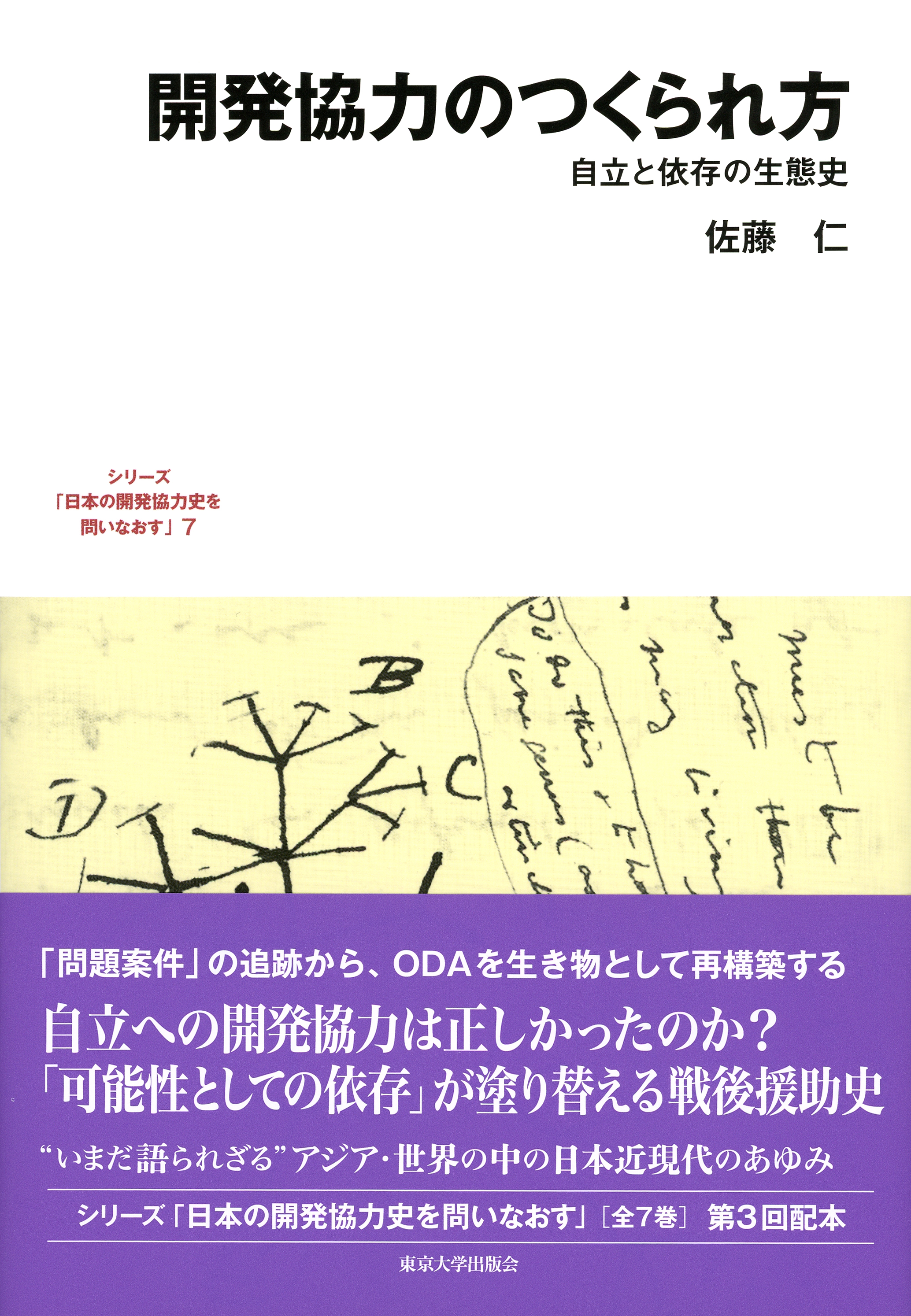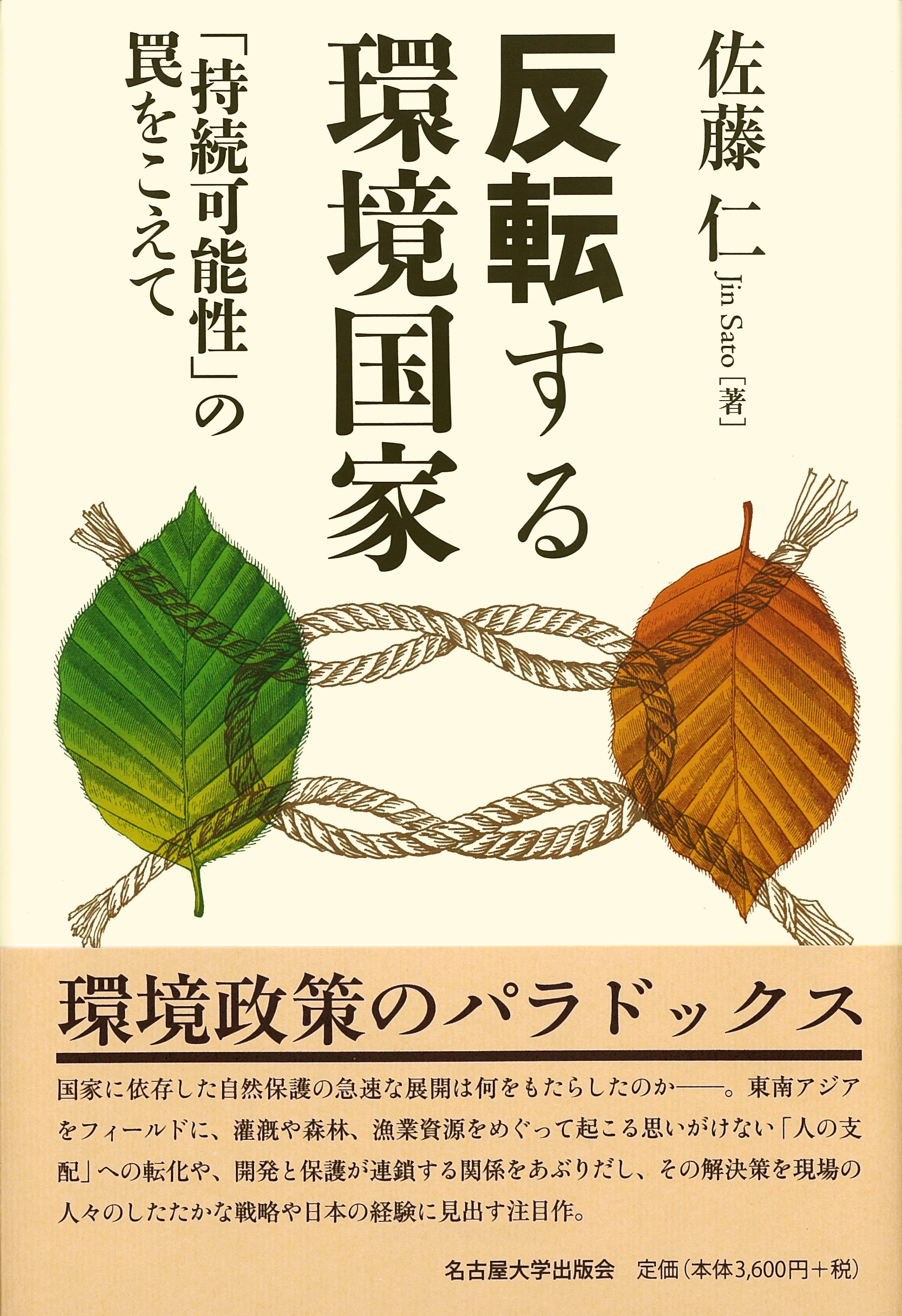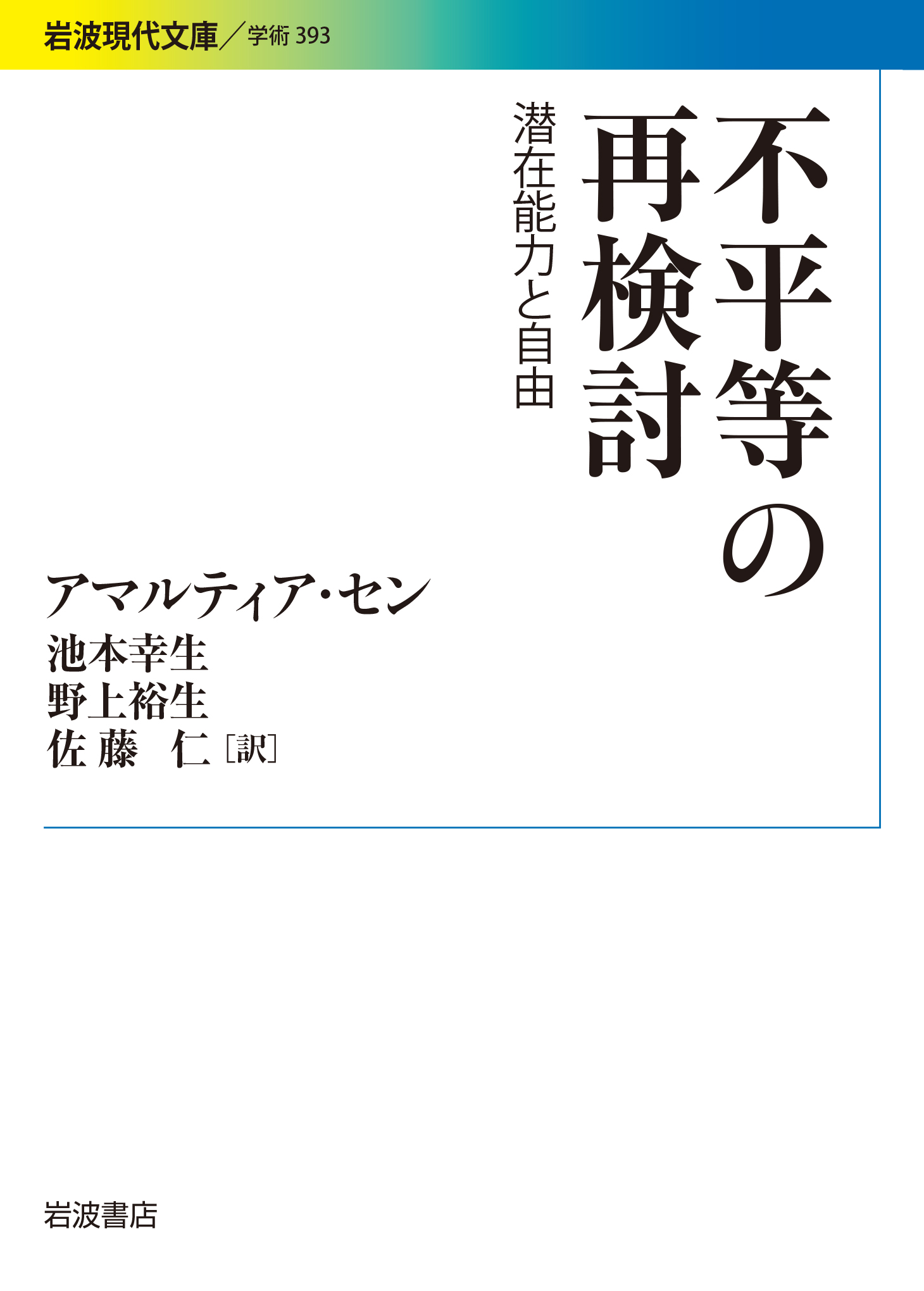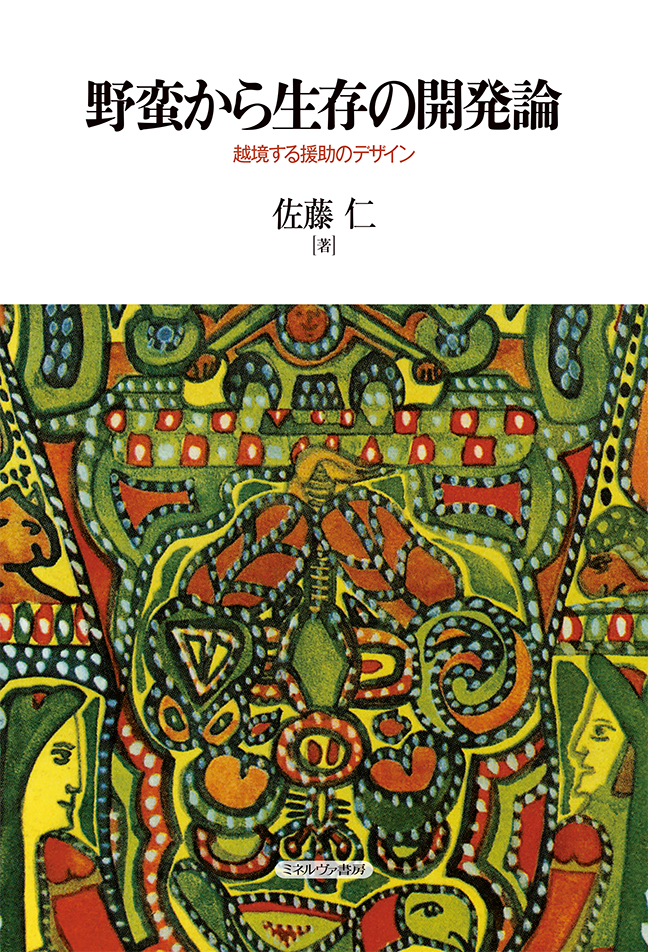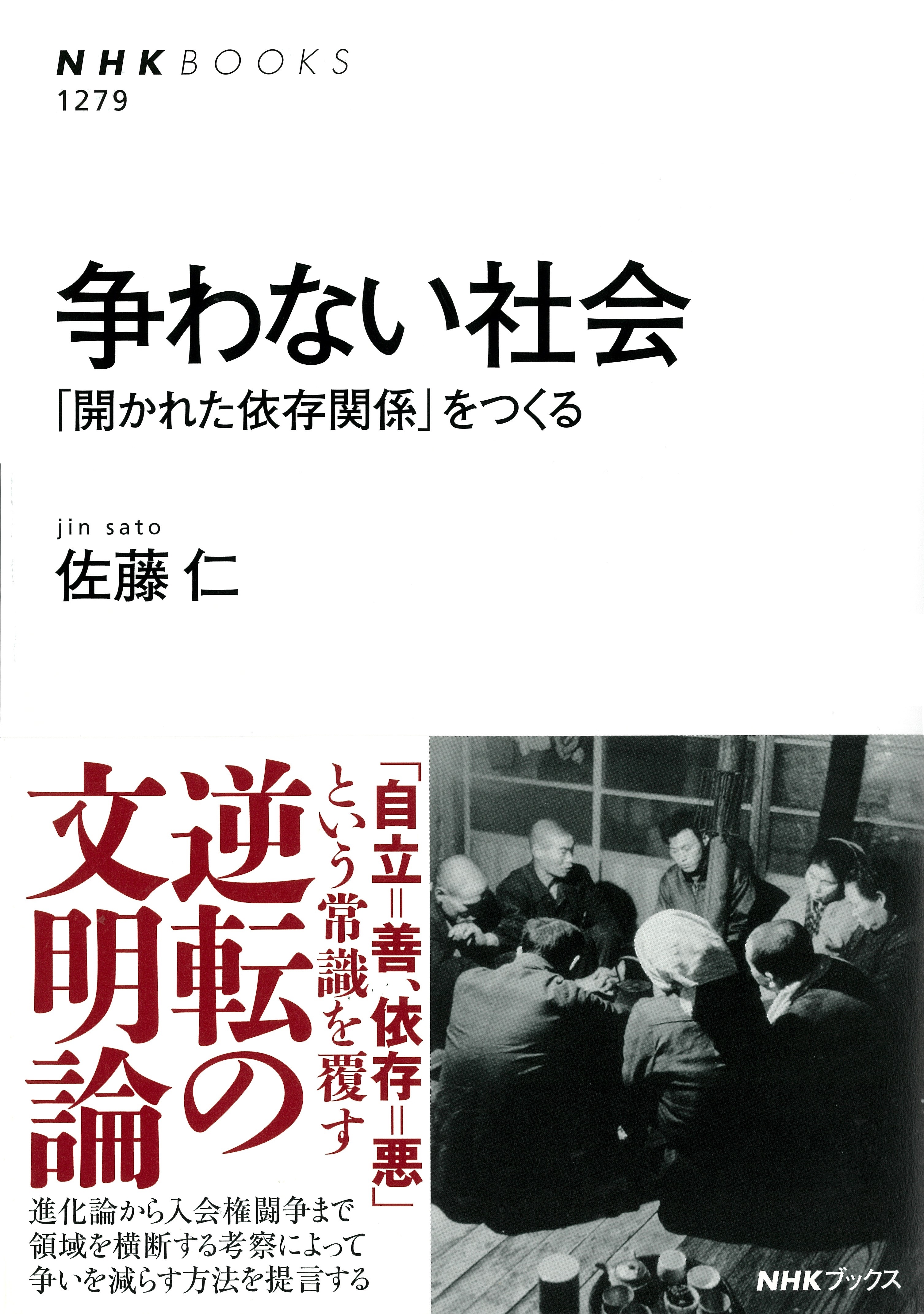
Title
NHK Books No.1279 Arasowanai shakai (A World without Conflicts - Establishing an open relationship of dependence)
Size
320 pages, B6 format
Language
Japanese
Released
May 25, 2023
ISBN
9784140912799
Published by
NHK Publishing Inc.
Book Info
See Book Availability at Library
Japanese Page
Human conflict never seems to end, no matter how much progress we make in science and technology or how much knowledge we accumulate as a result. In the past, conflicts were caused by poverty. However, we now live in a world where even rich people fight against one another. We do not have the wisdom to stop conflict once it escalates. Since we cannot eradicate conflict entirely from society, is there anything we can do to prevent it from escalating into violence?
This book presents the hypothesis that the nurturing of “intermediate groups,” which have been completely weakened by the process of modernization and its emphasis on independence and competition, may help prevent conflict from escalation. Although intermediate groups can serve as proxies for the state, they may also help unite people in solidarity so that they can resist—or lodge a complaint against—unjust dominance. Conflicts escalate when intermediate groups fail to function properly and atomized individuals become vulnerable to centralized power. The book posits that we may be able to build mutual dependence that will enable us to shield against domination by expanding the layer of intermediate groups, thereby providing more options to those seeking a group on whom they can simultaneously depend.
History shows that violent tragedies escalate when governments, which are supposed to represent people and protect them, commit atrocities against their own citizens. For example, Pol Pot in Cambodia is said to have massacred three million people, while Suharto in Indonesia purged communists estimated to have numbered in the hundreds of thousands. What is surprising is that these brutal acts were not only tolerated by the international community but also perpetuated with their support. The Pol Pot regime was always supported by China; Suharto received assistance from the U.S. and Japan. These dictatorships were buttressed by the power structure that made their existence possible with support from the international community. The outcomes were not based on the peculiar behavior of eccentric leaders.
If the concentration of excessive power is to be avoided, intermediate groups must put the brakes on such a system. To be sure, intermediate groups may not always be transparent with outsiders, and violence and abuse can sometimes become widespread within such groups. We are well aware of the difficulty associated with eradicating bullying in schools and human rights violations in private companies. This book proposes a social mechanism enabling people to seek help from multiple intermediate groups. A person can simultaneously choose to belong to several intermediate groups, such as a company, a nonprofit organization, a neighborhood association, a labor union, and various local clubs. I believe that expanding the layer of such groups will contribute to preventing the excessive concentration of power that can materialize at any given moment.
“Leave no one behind” is a commitment by United Nations Member States that is foundational to the agenda of the Sustainable Development Goals (SDGs). The SDGs originated with a reflection on conventional economic development, but the slogan does not say much about where one can be left behind. People who no longer have a group whom they can depend on often find themselves in a vulnerable and isolated situation. I believe that now is the time to rebuild an open relationship of dependence that allows people to rely on one another in times of need. In this sense, this book is an attempt to rediscover the value of dependence, the idea that has been demonized for so long throughout the process of modernization. Finding the virtues of dependency will also enable us to overcome the notion of “divide,” which is at the root of human conflict.
(Written by SATO Jin, Professor, Institute for Advanced Studies on Asia / 2023)



 Find a book
Find a book


